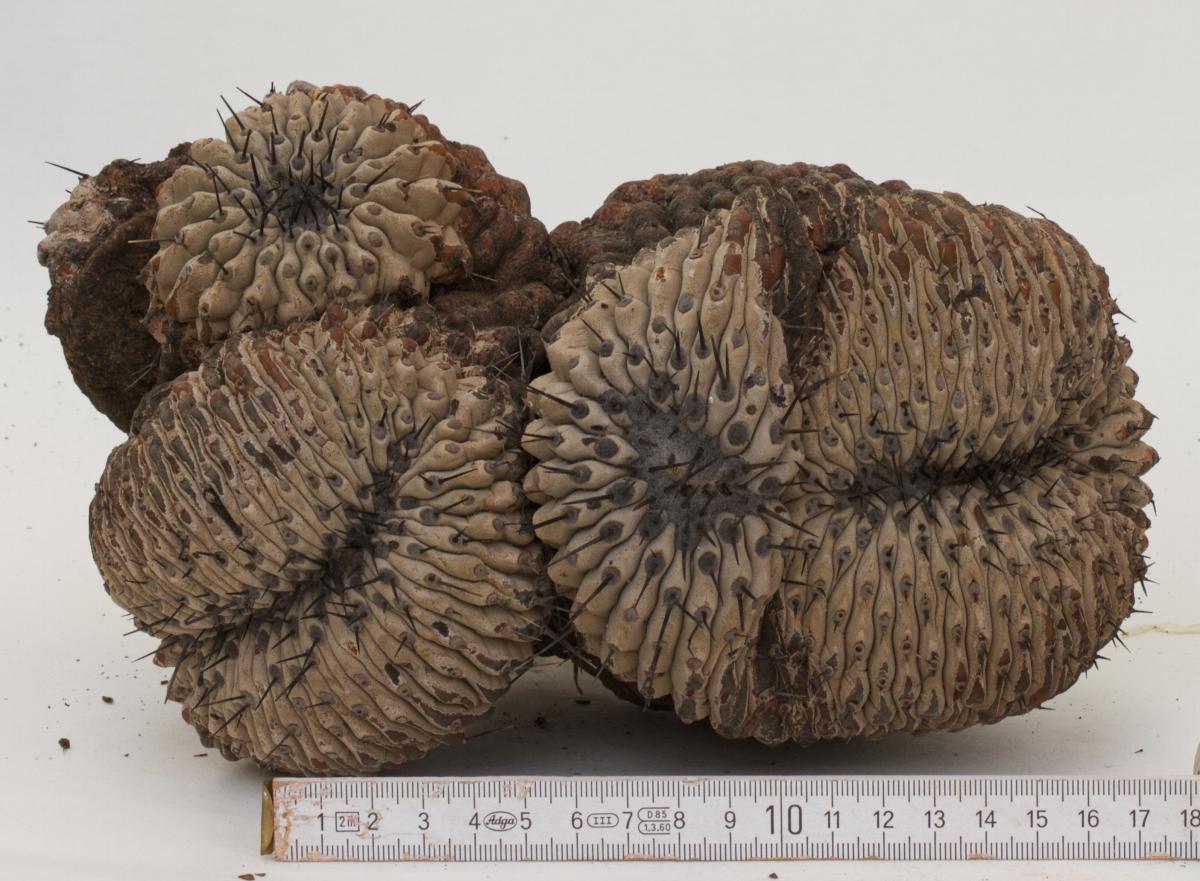“Operación Atacama”, the Recovery of Trafficked Threatened Cacti
For over a year, the IUCN SSC Cactus and Succulent Plants Specialist Group (CSSG), Associazione per la Biodiversitá e la sua Conservazione (Italy) and Universidad de Concepción (Chile) have collaborated with Italian and Chilean authorities in several procedures to confiscate plants in illegal trade.

Copiapoa
Photo: © Andrea Cattabriga
Qualified as the largest seizure of illegally traded cacti in Italy to date, “Operation Atacama” investigates the criminal networks behind the illicit market of cacti, particularly of the genus Copiapoa; as well as looked into the communication process between sellers and collectors, transportation routes from their country of origin to their final destination and who buys them.
The striking shapes of cacti have always allured plant enthusiasts. These characteristics, plus to their rarity, both in terms of their small geographic ranges and low abundance, make certain species extremely attractive to collectors. Such is the case of the species belonging to the genus Copiapoa, endemic to the dry coast of the Atacama desert, Chile.
In recent years this region has been heavily targeted by illegal collectors, contributing to the rapid decline of cactus populations in the wild. Populations already are under great pressure as a result of global climate and land-use change.
In February 2020 a shipment of 1,019 cacti were seized, mostly Chilean plants of the genera Copiapoa (876 plants) and Eriosyce (79 plants). Other plants belong to several species of other genera from the United States, Mexico and Argentina. A second seizure took place on November 17th, when Italian authorities found a total of 171 plants — 80 from Chile, 89 from Mexico, and 2 from the United States.
These two seizures add up to 1,035 Chilean plants. The cacti were removed from the wild between 2013 and 2019 and shipped from the city of Huasco, Atacama Region in Chile, to Greece. The cacti entered into the European Union through Greece from where they were then shipped to various countries to be sold, including Asian countries, for as much as USD $ 500–1,500.
“Operation Atacama” was covered by the media as follows in this Italian news story and Chilean video in Spanish.



